International Organization of Supreme Audit Institutions
The International Organization of Supreme Audit Institutions (INTOSAI) is an intergovernmental organization whose members are supreme audit institutions. Nearly every supreme audit institution in the world is a member of INTOSAI. Depending on the type of system used in their home country, the members of INTOSAI may be variously titled the Chief Financial Controller, the Office of the Comptroller General, the Office of the Auditor General, the Court of Accounts, or the Board of Audit.
 | |
| Abbreviation | INTOSAI |
|---|---|
| Formation | 1953 |
| Type | IGO |
| Headquarters | Vienna, Austria |
Secretary General | Margit Kraker[1] |
| Website | www |
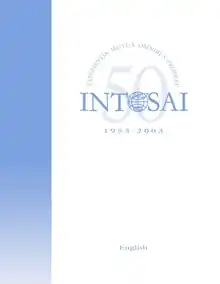
INTOSAI holds a triennial conference entitled the International Congress of Supreme Audit Institutions (INCOSAI).[2] It publishes the quarterly International Journal of Government Auditing and publishes guidelines and international standards on auditing.
History
INTOSAI was founded in 1953[3] in Havana, Cuba.[4] Thirty-four audit organizations formed the group originally and as of 2010 the current membership includes 193 institutions (188 national institutions, the European Court of Auditors and 4 associated members).[3]
The members of INTOSAI are the primary external auditors of the United Nations.[4] The UN's General Assembly appoints the UN Board of Auditors (3 members appointed for 6 years) among the INTOSAI member representatives.[5]
The ISSAIs, International Standards of Supreme Audit Institutions
The International Standards of Supreme Audit Institutions (ISSAI) are a benchmark for auditing public entities (External Audit Standards for public entities).
The "INTOSAI Auditing Standards" had been approved by the INCOSAI in 1998 and updated in 2001. In its strategic plan 2005–2010, the INTOSAI decided to "provide an up-to-date framework of professional standards", so the INTOSAI Professional Standards Committee decided to merge the existing and new INTOSAI standards and guidelines into a framework.
The framework comprises all documents endorsed by INCOSAI with the purpose of guiding the professional standards used by SAIs
The list of ISSAIs is in the table below:
- Auditing Standards (ISSAI-numbers of 3 digits) stipulate general principles and postulates for carrying out the audit work;
- Implementation Guidelines (ISSAI-numbers of 4 digits) give more detailed guidance, practical assistance to SAIs in implementing the Standards in their individual constituents.
| Hierarchical level of the text | ISSAI series | Name | Notes and Links www |
|---|---|---|---|
| Level 1: Founding Principles | ISSAI 1 | The Lima Declaration (endorsed 1977) | Comprehensive precepts on auditing in the public sector| |
| Level 2: Prerequisites | ISSAI 10-40 | Prerequisites for the Functioning of Supreme Audit Institutions | * The 'ISSAI 30' Code of Ethics is the statement of values and principles guiding the daily work of the auditors. One of the principles outlined in the Code of Ethics is the statutory auditor’s obligation to apply generally accepted auditing standards. (not to be mistaken with the AICPA's Generally accepted auditing standards)| |
| Level 3: Fundamental Auditing Principles | ISSAI 100-400 | Basic Principles, General Standards, Field Standards (endorsed 2001), and Reporting Standards | |
| Level 4: Auditing Guidelines | ISSAI 1000-1810 | Financial Audit Guidelines | Financial_Audit_Guidelines_E.pdf |
| ISSAI 3000-3100 | Performance Audit Guidelines | ||
| ISSAI 4000-4200 | Compliance Audit Guidelines | ||
| ISSAI 5000-5010 | Guidelines on auditing International Institutions | ||
| ISSAI 5100-5140 | Guidelines on Environmental Audit | ||
| ISSAI 5200-5240 | Guidelines on Privatisation | ||
| ISSAI 5300-5399 | guidelines on IT-audit | ||
| ISSAI 5400-5499 | Guidelines on Audit of Public Debt | ||
| ISSAI 5500-5599 | Guidelines on Audit of Disaster-related Aid | ||
| ISSAI 5600-5699 | Guidelines on Peer Reviews | ||
| Guidance for Good governance | INTOSAI GOVs 9100 - 9230 | Internal Control and Accounting Standards | www.issai.org/media(891,1033)/Internal_Control_Standards.pdf |
The three main types of public-sector audit
Financial Audit
Financial audit focuses on determining whether an entity’s financial information is presented in accordance with the applicable financial reporting and regulatory framework. This is accomplished by obtaining sufficient and appropriate audit evidence to enable the auditor to express an opinion as to whether the financial information is free from material misstatement due to fraud or error.
Performance Audit
Performance audit focuses on whether interventions, programmes and institutions are performing in accordance with the principles of economy, efficiency and effectiveness and whether there is room for improvement. Performance is examined against suitable criteria, and the causes of deviations from those criteria or other problems are analysed. The aim is to answer key audit questions and to provide recommendations for improvement.
Compliance Audit
Compliance audit focuses on whether a particular subject matter is in compliance with authorities identified as criteria. Compliance auditing is performed by assessing whether activities, financial transactions and information are, in all material respects, in compliance with the authorities which govern the audited entity. These authorities may include rules, laws and regulations, budgetary resolutions, policy, established codes, agreed terms or the general principles governing sound public sector financial management and the conduct of public officials.
Examples of publications
Examples of its major publications are:
- Guidelines for Internal Control Standards for the Public Sector (1992 - The current text is the 2004 revision by the INTOSAI Internal Control Standards Committee, approved by the XVIIIth INCOSAI of October 2004. It has been subsequently integrated in the INTOSAI standards/guidances as "INTOSAI GOV 9100"). It relies upon the COSO's integrated framework for internal control (as stated in the preface), and uses the COSO's definition of Internal Control and IIA's definition of Internal Audit.
- Guidelines on Best Practice for the Audit of Privatizations, (1998)
- Guidance for Planning an Audit of Internal Controls for Public Debt, (2002)
Adoption by intergovernmental organizations
In addition to the INTOSAI members (the Supreme Audit Institutions), the following intergovernmental organizations have adopted INTOSAI AS:
- Council of Europe
- European Communities
- The European Court of Auditors performs its audits in accordance with the IFAC and INTOSAI Auditing Standards and Codes of ethics, in so far as these are applicable in the European Community context.[6]
- European Centre for Medium-Range Weather Forecasts
- Audit by two appointed Supreme Audit Institutions.
- European Space Agency
- Audit by an Audit Board composed of Supreme Audit Institutions auditors.
- EUMETSAT
- Audit by an appointed Supreme Audit Institution.
- International Criminal Police Organization
- North Atlantic Treaty Organization
- Organisation for Economic Co-operation and Development
- Audit by a Supreme Audit Institution.
- The United Nations
- The United Nations' Board of Auditors (the external audit of the UN) has adopted the ISAs[7] (International Standards on Auditing). The Board is composed of three Supreme Audit Institutions chairmen, familiar with and usually using the INTOSAI Auditing Standards.[8]
INTOSAI and Internal Audit
The Institute of Internal Auditors (IIA) is among the five associated members of the INTOSAI.[9] The INTOSAI is a strong advocate for the establishment of Independent Internal audit in public entities.
- ISSAI 1610 – Using the Work of Internal Auditors
- INTOSAI Guidance for Good governance: INTOSAI GOVs 9100–9230
The guidance "INTOSAI GOV 9100" states:
- (page 46) "The Supreme Audit Institution also has a vested interest in ensuring that strong internal audit units exist where needed. Those audit units constitute an important element of internal control by providing a continuous means for improving an organisation's operations. In some countries, however, the internal audit units may lack independence, be weak, or be non-existent. In those cases, the SAI should, whenever possible, offer assistance and guidance to establish and develop those capacities and to ensure the independence of the internal auditor's activities."
- "The creation of an internal audit unit as part of the internal control system is a strong signal by management that internal control is important. ... For an internal audit function to be effective, it is essential that the internal audit staff be independent from management, work in an unbiased, correct and honest way and that they report directly to the highest level of authority within the organisation. ... "For professional guidance, internal auditors should use the Professional Practices Framework (PPF) of the Institute of Internal Auditors (IIA) (...) Additionally, internal auditors should follow the INTOSAI Code of Ethics".
Regional working groups
- AFROSAI: African Organization of Supreme Audit Institutions
- ARABOSAI: Arab Organization of Supreme Audit Institutions
- ASOSAI: Asian Organization of Supreme Audit Institutions
- CAROSAI: Caribbean Organization of Supreme Audit Institutions
- EUROSAI: European Organization of Supreme Audit Institutions. For more information please see website.
- OLACEFS: Organization of Latin American and Caribbean Supreme Audit Institutions. For more information please see website
- PASAI: Pacific Association of Supreme Audit Institutions
List of INTOSAI Conferences
Memberships
The following supreme audit institution are members of INTOSAI:[9]
Full Members
 Albania: State Supreme Audit (Albania)
Albania: State Supreme Audit (Albania) Algeria: Cour des Comptes
Algeria: Cour des Comptes Andorra: Tribunal de Comptes
Andorra: Tribunal de Comptes Angola: Tribunal de Contas de Angola
Angola: Tribunal de Contas de Angola Argentina: Auditoría General de la Nación
Argentina: Auditoría General de la Nación Armenia: Chamber of Audit
Armenia: Chamber of Audit.svg.png.webp) Australia: Australian National Audit Office
Australia: Australian National Audit Office Austria: Rechnungshof
Austria: Rechnungshof Azerbaijan: Chamber of Accounts
Azerbaijan: Chamber of Accounts Bahamas: Office of the Auditor General
Bahamas: Office of the Auditor General Bahrain: National Audit Office
Bahrain: National Audit Office Bangladesh: Comptroller and Auditor General
Bangladesh: Comptroller and Auditor General Barbados: Auditor General's Office
Barbados: Auditor General's Office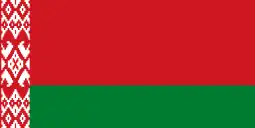 Belarus: State Control Committee
Belarus: State Control Committee.svg.png.webp) Belgium: Court of Audit of Belgium
Belgium: Court of Audit of Belgium Belize: The Office of the Auditor General
Belize: The Office of the Auditor General Benin: Chambre des Comptes de la Cour Suprême
Benin: Chambre des Comptes de la Cour Suprême Bhutan: Royal Audit Authority
Bhutan: Royal Audit Authority.svg.png.webp) Bolivia: Contraloría General del Estado
Bolivia: Contraloría General del Estado Botswana: Office of the Auditor General
Botswana: Office of the Auditor General Brazil: Tribunal de Contas da União
Brazil: Tribunal de Contas da União Bulgaria: Chamber of Audit
Bulgaria: Chamber of Audit Cape Verde: Tribunal de Contas
Cape Verde: Tribunal de Contas Cambodia: National Audit Authority of Cambodia
Cambodia: National Audit Authority of Cambodia.svg.png.webp) Canada: Auditor General of Canada
Canada: Auditor General of Canada Central African Republic: Inspection Général d’État
Central African Republic: Inspection Général d’État Chile: Comptroller General of Chile
Chile: Comptroller General of Chile China: National Audit Office
China: National Audit Office Colombia: Contraloria General de la República
Colombia: Contraloria General de la República Comoros: Cour Suprême – Section des Comptes des Comores
Comoros: Cour Suprême – Section des Comptes des Comores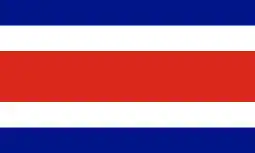 Costa Rica: Contraloria General de la República
Costa Rica: Contraloria General de la República Ivory Coast: Cour des Comptes de Côte d'Ivoire
Ivory Coast: Cour des Comptes de Côte d'Ivoire Croatia: Drzavni Ured za Reviziju
Croatia: Drzavni Ured za Reviziju Cuba: Contraloría General de la República de Cuba
Cuba: Contraloría General de la República de Cuba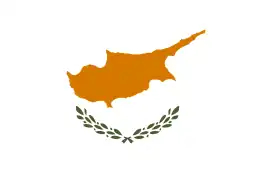 Cyprus: Audit Office of the Republic
Cyprus: Audit Office of the Republic Czech Republic: Supreme Audit Office
Czech Republic: Supreme Audit Office Denmark: Rigsrevisionen
Denmark: Rigsrevisionen Djibouti: Cour des Comptes
Djibouti: Cour des Comptes Dominica: Audit Department
Dominica: Audit Department Dominican Republic: Cámara de Cuentas de la República Dominicana
Dominican Republic: Cámara de Cuentas de la República Dominicana Egypt: Central Auditing Organization
Egypt: Central Auditing Organization Eritrea: Office of the Auditor General
Eritrea: Office of the Auditor General Fiji: Office of the Auditor General
Fiji: Office of the Auditor General Finland: National Audit Office of Finland
Finland: National Audit Office of Finland France: Court of Audit
France: Court of Audit Gabon: Cour des Comptes
Gabon: Cour des Comptes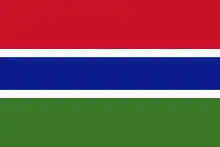 Gambia: National Audit Office
Gambia: National Audit Office Ghana: Ghana Audit Service
Ghana: Ghana Audit Service Germany: Bundesrechnungshof
Germany: Bundesrechnungshof Georgia: State Audit Office of Georgia
Georgia: State Audit Office of Georgia Greece: Court of Audit
Greece: Court of Audit Grenada: Audit Department
Grenada: Audit Department Guatemala: Contraloría General de Cuentas
Guatemala: Contraloría General de Cuentas Guinea: Cour des Comptes
Guinea: Cour des Comptes Guinea-Bissau: Tribunal de Contas
Guinea-Bissau: Tribunal de Contas Guyana: The Audit Office of Guyana
Guyana: The Audit Office of Guyana Haiti: Cour Supérieure CCA
Haiti: Cour Supérieure CCA Honduras: Tribunal Superior de Cuentas
Honduras: Tribunal Superior de Cuentas Hungary: Allami Számvevöszék
Hungary: Allami Számvevöszék Iceland: Rikisendurskodun
Iceland: Rikisendurskodun India: Comptroller and Auditor General of India
India: Comptroller and Auditor General of India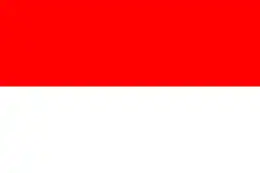 Indonesia: Audit Board of Indonesia
Indonesia: Audit Board of Indonesia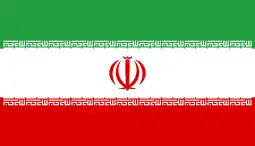 Iran: Supreme Audit Court
Iran: Supreme Audit Court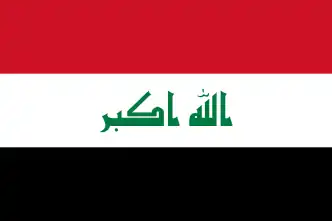 Iraq: Federal Board of Supreme Audit
Iraq: Federal Board of Supreme Audit Ireland: Comptroller and Auditor General
Ireland: Comptroller and Auditor General Israel: State Comptroller's Office
Israel: State Comptroller's Office Italy: Court of Audit
Italy: Court of Audit Jamaica: Audit Department
Jamaica: Audit Department Japan: Board of Audit
Japan: Board of Audit Jordan: Audit Bureau of Jordan
Jordan: Audit Bureau of Jordan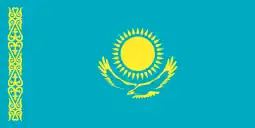 Kazakhstan: Accounts Committee
Kazakhstan: Accounts Committee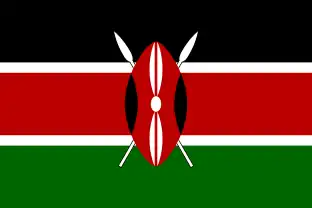 Kenya: Kenya National Audit Office
Kenya: Kenya National Audit Office Kiribati: Kiribati National Audit Office
Kiribati: Kiribati National Audit Office Kosovo: National Audit Office of Kosovo
Kosovo: National Audit Office of Kosovo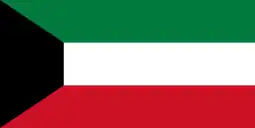 Kuwait: State Audit Bureau
Kuwait: State Audit Bureau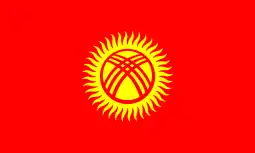 Kyrgyzstan: The Accounts Chamber of the Kyrgyz Republic
Kyrgyzstan: The Accounts Chamber of the Kyrgyz Republic Laos: State Audit Organization
Laos: State Audit Organization Latvia: Latvijas Republikas Valsts kontrole
Latvia: Latvijas Republikas Valsts kontrole Lebanon: Cour des Comptes
Lebanon: Cour des Comptes Lesotho: Office of the Auditor General
Lesotho: Office of the Auditor General Liberia: General Auditing Commission
Liberia: General Auditing Commission Libya: Libyan Audit Bureau
Libya: Libyan Audit Bureau Liechtenstein: Finanzkontrolle des Fürstentums Liechtenstein
Liechtenstein: Finanzkontrolle des Fürstentums Liechtenstein Lithuania: Valstybės kontrolė
Lithuania: Valstybės kontrolė Luxembourg: Cour des Comptes
Luxembourg: Cour des Comptes Madagascar: Cour des Comptes
Madagascar: Cour des Comptes Malawi: National Audit Office
Malawi: National Audit Office Malaysia: National Audit Department
Malaysia: National Audit Department Maldives: Auditor General's Office
Maldives: Auditor General's Office Mali: Contrôle Général des Services Publics
Mali: Contrôle Général des Services Publics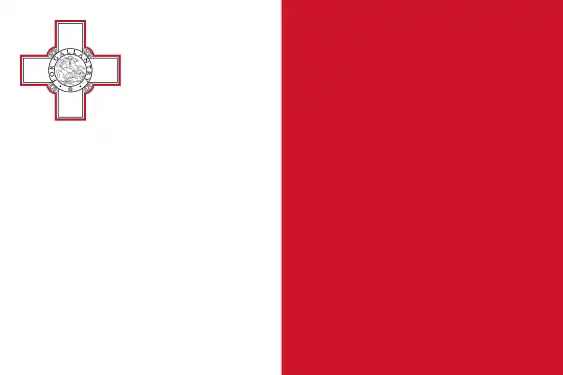 Malta: National Audit Office
Malta: National Audit Office Marshall Islands: Office of the Auditor General
Marshall Islands: Office of the Auditor General Mauritania: Cour des Comptes de la République Islamique de Mauritanie
Mauritania: Cour des Comptes de la République Islamique de Mauritanie Mauritius: National Audit Office
Mauritius: National Audit Office Mexico: Superior Auditor of the Federation
Mexico: Superior Auditor of the Federation Federated States of Micronesia: Office of the Public Auditor
Federated States of Micronesia: Office of the Public Auditor Moldova: Curtea de Conturi
Moldova: Curtea de Conturi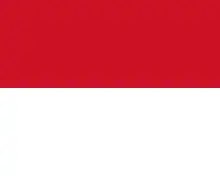 Monaco: Commission Supérieure des Comptes
Monaco: Commission Supérieure des Comptes Mongolia: Mongolian National Audit Office
Mongolia: Mongolian National Audit Office Montenegro: State Audit Institution of Montenegro
Montenegro: State Audit Institution of Montenegro Morocco: Cour des Comptes
Morocco: Cour des Comptes Mozambique: Tribunal Administrativo
Mozambique: Tribunal Administrativo Myanmar: Office of the Auditor General
Myanmar: Office of the Auditor General Namibia: Office of the Auditor-General
Namibia: Office of the Auditor-General Nauru: Department of Audit
Nauru: Department of Audit Nepal: Office of the Auditor General
Nepal: Office of the Auditor General Netherlands: Court of Audit
Netherlands: Court of Audit New Zealand: Office of the Auditor-General
New Zealand: Office of the Auditor-General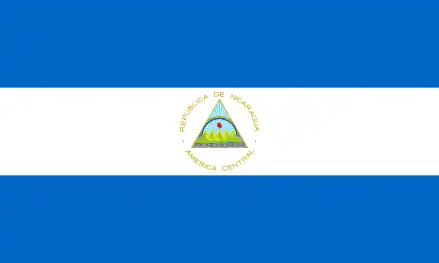 Nicaragua: Consejo Superior de la Contraloría General
Nicaragua: Consejo Superior de la Contraloría General Niger: Cour des comptes
Niger: Cour des comptes Nigeria: Office of the Auditor General for the Federation
Nigeria: Office of the Auditor General for the Federation North Macedonia: Drzaven zavod za revizija
North Macedonia: Drzaven zavod za revizija Norway: Office of the Auditor General of Norway
Norway: Office of the Auditor General of Norway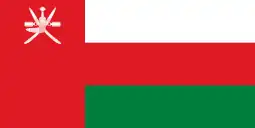 Oman: State Audit Institution
Oman: State Audit Institution Pakistan: Auditor General of Pakistan
Pakistan: Auditor General of Pakistan Palau: Office of the Public Auditor
Palau: Office of the Public Auditor Palestine: State Audit and Administrative Control Bureau
Palestine: State Audit and Administrative Control Bureau Panama: Contraloría General de la República de Panamá
Panama: Contraloría General de la República de Panamá Papua New Guinea: Auditor General's Office
Papua New Guinea: Auditor General's Office Paraguay: Contraloría General de la República
Paraguay: Contraloría General de la República Peru: Contraloria General de la República
Peru: Contraloria General de la República Philippines: Commission on Audit of the Philippines
Philippines: Commission on Audit of the Philippines Poland: Supreme Audit Office
Poland: Supreme Audit Office Portugal: Court of Auditors
Portugal: Court of Auditors Qatar: State Audit Bureau
Qatar: State Audit Bureau Republic of the Congo: Cour des Comptes et de Discipline Budgétaire
Republic of the Congo: Cour des Comptes et de Discipline Budgétaire Romania: Court of Audit
Romania: Court of Audit Russia: Accounts Chamber of Russia
Russia: Accounts Chamber of Russia Rwanda: Office of the Auditor General
Rwanda: Office of the Auditor General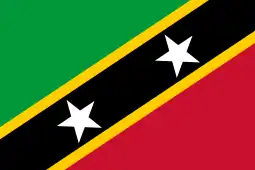 Saint Kitts and Nevis: The Audit Office
Saint Kitts and Nevis: The Audit Office Saint Lucia: Office of the Director of Audit
Saint Lucia: Office of the Director of Audit Samoa: Samoa Audit Office
Samoa: Samoa Audit Office São Tomé and Príncipe: Tribunal de Contas
São Tomé and Príncipe: Tribunal de Contas Saudi Arabia: General Auditing Bureau
Saudi Arabia: General Auditing Bureau Senegal: Cour des Comptes
Senegal: Cour des Comptes Serbia: Drzavna revizorska institucija
Serbia: Drzavna revizorska institucija Seychelles: The Audit Department
Seychelles: The Audit Department Sierra Leone: Audit Service Sierra Leone
Sierra Leone: Audit Service Sierra Leone Singapore: Auditor General's Office
Singapore: Auditor General's Office Slovakia: Najvyšši kontrolný úrad Slovenskej republiky
Slovakia: Najvyšši kontrolný úrad Slovenskej republiky Slovenia: Court of Audit of Slovenia
Slovenia: Court of Audit of Slovenia Solomon Islands: Office of the Auditor General
Solomon Islands: Office of the Auditor General Somalia: Office of the Auditor General
Somalia: Office of the Auditor General South Africa: Auditor-General of South Africa
South Africa: Auditor-General of South Africa South Korea: Board of Audit and Inspection
South Korea: Board of Audit and Inspection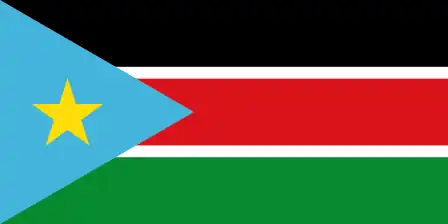 South Sudan: National Audit Chamber
South Sudan: National Audit Chamber Spain: Court of Auditors
Spain: Court of Auditors Sri Lanka: National Audit Office
Sri Lanka: National Audit Office Saint Vincent and the Grenadines: Audit Office
Saint Vincent and the Grenadines: Audit Office Sudan: National Audit Chamber
Sudan: National Audit Chamber Suriname: Rekenkamer van Suriname
Suriname: Rekenkamer van Suriname Sweden: Swedish National Audit Office
Sweden: Swedish National Audit Office.svg.png.webp) Switzerland: Eidgenössische Finanzkontrolle
Switzerland: Eidgenössische Finanzkontrolle Syria: The Central Organization of Financial Control
Syria: The Central Organization of Financial Control Taiwan: Control Yuan
Taiwan: Control Yuan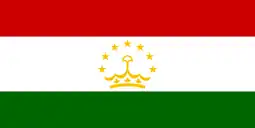 Tajikistan: Accounts Chamber of the Republic of Tajikistan
Tajikistan: Accounts Chamber of the Republic of Tajikistan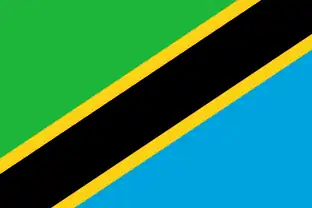 Tanzania: National Audit Office
Tanzania: National Audit Office Thailand: State Audit Office of the Kingdom of Thailand
Thailand: State Audit Office of the Kingdom of Thailand Timor-Leste: Tribunal de Recurso
Timor-Leste: Tribunal de Recurso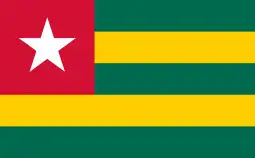 Togo: La Cour des Comptes
Togo: La Cour des Comptes Tonga: Audit Department
Tonga: Audit Department Trinidad and Tobago: Auditor General's Department
Trinidad and Tobago: Auditor General's Department Tunisia: Cour des Comptes
Tunisia: Cour des Comptes Turkey: Court of Accounts
Turkey: Court of Accounts Tuvalu: Office of the Auditor General
Tuvalu: Office of the Auditor General Uganda: Office of the Auditor General
Uganda: Office of the Auditor General Ukraine: Accounting Chamber
Ukraine: Accounting Chamber United Arab Emirates: State Audit Institution
United Arab Emirates: State Audit Institution United Kingdom: National Audit Office
United Kingdom: National Audit Office United States: Government Accountability Office
United States: Government Accountability Office Uruguay: Tribunal de Cuentas de la República
Uruguay: Tribunal de Cuentas de la República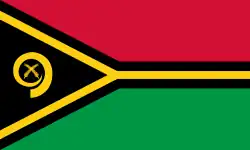 Vanuatu: Office of the Auditor General
Vanuatu: Office of the Auditor General.svg.png.webp) Vatican City: Officium Recognitoris Generalis
Vatican City: Officium Recognitoris Generalis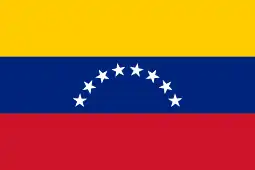 Venezuela: Contraloría General de la República
Venezuela: Contraloría General de la República Vietnam: State Audit Office of Vietnam
Vietnam: State Audit Office of Vietnam Yemen: Central Organization for Control and Auditing
Yemen: Central Organization for Control and Auditing Zambia: Office of the Auditor General
Zambia: Office of the Auditor General Zimbabwe: Office of the Auditor General
Zimbabwe: Office of the Auditor General
Supranational Organisations
Associate Members
- Association des Institutions Supérieures de Contrôle Ayant en Commun l'usage du français (AISCCUF)
- Court of Audit of the West African Economic and Monetary Union (UEMOA)
- Organization of SAIs of Portuguese Speaking Countries (OISC/CPLP)
- The Institute of Internal Auditors (IIA)
- World Bank
See also
References
- "Margit Kraker". International Organization of Supreme Audit Institutions. Archived from the original on 13 December 2017. Retrieved 14 March 2019.
- Shah, Anwar (2007), Performance Accountability and Combating Corruption (PDF), Washington, D.C., U.S.: World Bank, p. 309, ISBN 978-0821369418, OCLC 77116846
- Hussey, Roger; Ong, Audra Wei Ming (2006), International Financial Reporting Standards Desk Reference, Hoboken, New Jersey: John Wiley & Sons, p. 289, ISBN 978-0-471-72715-6, OCLC 57573800
- Franda, Marcus F. (2006), The United Nations in the Twenty-first Century: Management and Reform Processes in a Troubled Organization, Lanham, Maryland, U.S.: Rowman & Littlefield, p. 219, ISBN 978-0-7425-5334-7, OCLC 62895793
- "United Nations Board of Auditors".
- "Audit". Archived from the original on 14 October 2009. Retrieved 22 August 2010.
- "United Nations Board of Auditors".
- The INTOSAI Financial Audit Guidelines will be based on the International Standards on Auditing (ISA) issued by the IAASB http://www.afrosai-e.org.za/HOME/Menu/TechnicalAdvancement/INTOSAIauditingstandards/tabid/82/Default.aspx
- Official membership list https://www.intosai.org/about-us/members
External links
- A draft framework of ISSAI standards: www.afrosai-e.org.za
- INTOSAI Marks 50 Years International Journal of Government Auditing January 2003
_1989%252C_MiNr_843.jpg.webp)